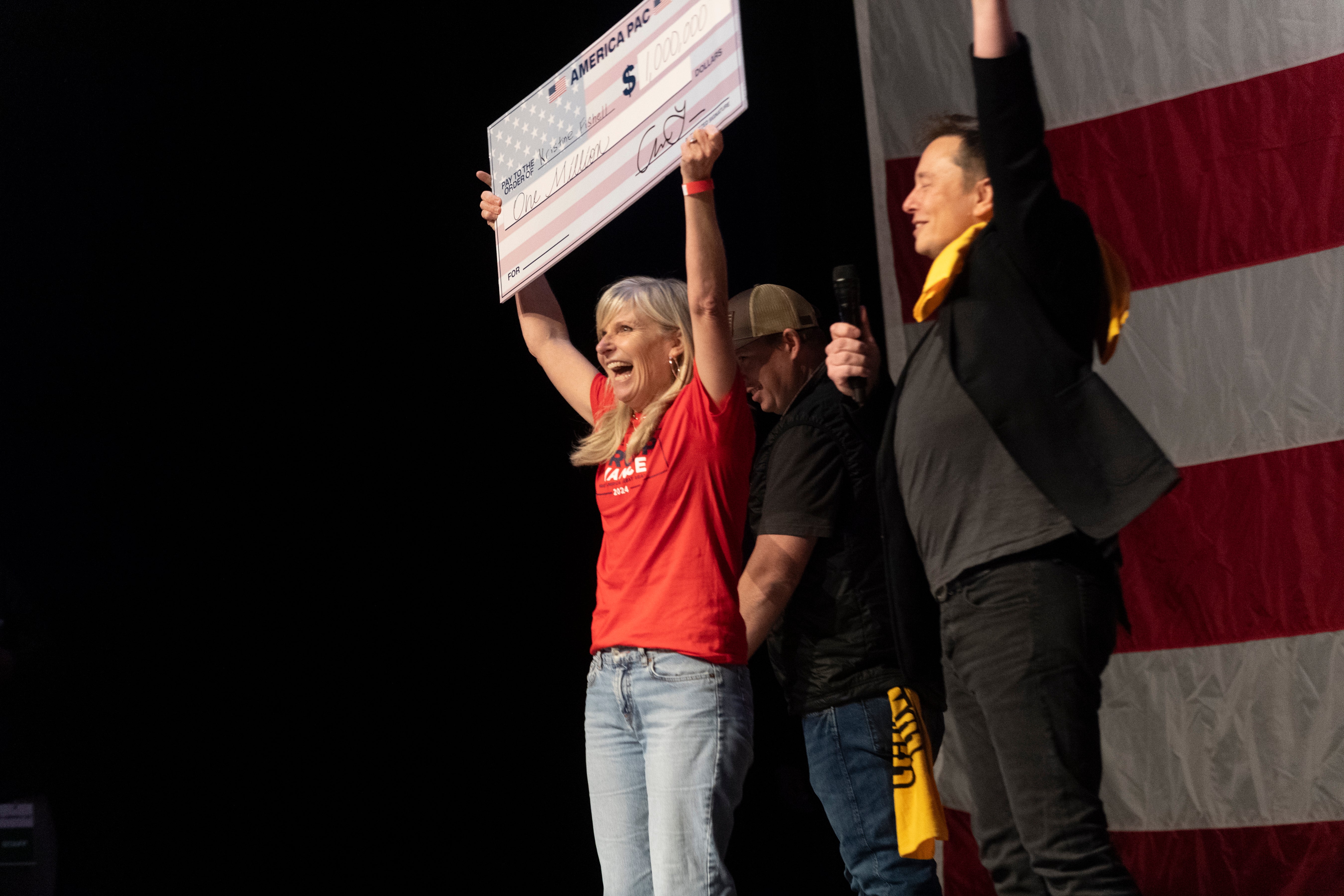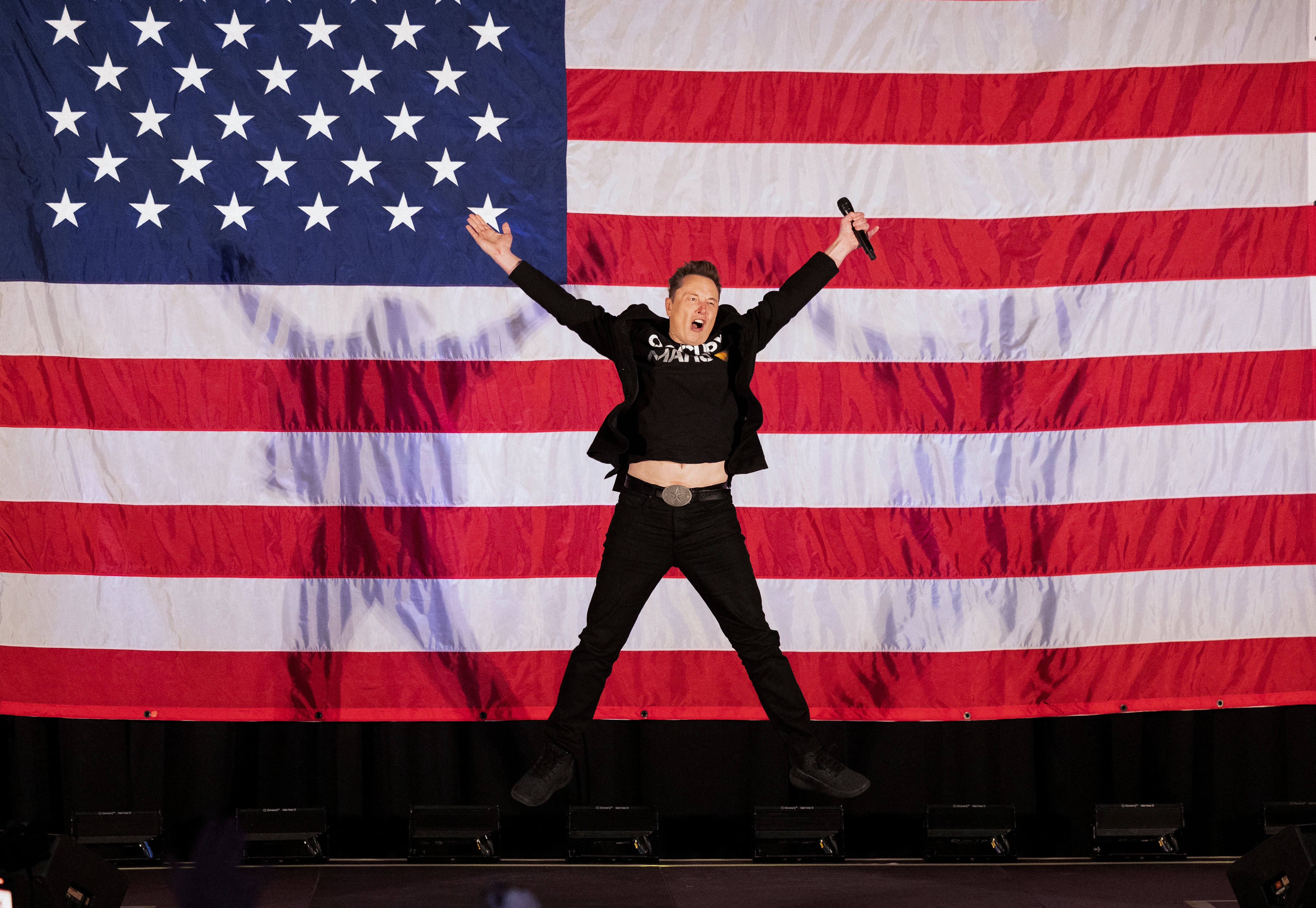Elon Musk is promising daily $1 million prizes to registered voters in battleground states who sign a petition produced by his Donald Trump-supporting political action committee.
The catch: The world’s wealthiest man — who has pumped at least $75 million into Trump’s presidential campaign — is limiting the sweepstakes to voters in seven swing states. The deadline to sign the petition fell right on the deadlines for voter registration in Michigan and Pennsylvania.
Under federal law, it is illegal to pay, offer to pay, or accept payment for registering to vote or voting — punishable up to five years in prison.
Did Musk create a roundabout illegal incentive to get people to register to vote by requiring certain registered voters to sign his petition? Are the people who accepted the money taking an illegal bribe?
It will be up to federal prosecutors to decide whether to investigate. Pennsylvania Governor Josh Shapiro called it “deeply concerning” and suggested law enforcement could be looking into it.
Election law experts and civil rights groups — who have been sounding the alarm over Musk’s pivot to electioneering — say that his latest stunt is either blatantly illegal or a legal but repulsive attempt to exploit weaknesses in election law by merging a voter registration drive with his multi-million Trump campaign.
Either way, Musk’s stunt is “just the latest — and most egregious — example of wealthy special interests distorting our political process at the expense of everyday voters,” according to Adav Noti, executive director of Campaign Legal Center.
“It is extremely problematic that the world’s richest man can throw his money around in an attempt to directly influence the outcome of this election. This is not how our democracy should work,” he said in a statement to The Independent. “It is illegal to buy votes, it is illegal to buy voter registration, and the Department of Justice has the power to enforce these important laws through civil or criminal action.”

The petition from Musk’s America PAC requires supporters to pledge their support for the First and Second Amendments, which protect the right to free speech and the right to bear arms. It does not mention Trump.
UCLA School of Law professor and Safeguarding Democracy Project director Rich Hasen says Musk’s stunt is “clearly illegal.”
“What essentially he’s doing is setting up a lottery, and the only people who can participate are registered to vote. So it’s either creating an incentive … or a reward,” Hasen told MSNBC.
The Justice Department states that a “bribe” could include “anything having monetary value, including cash, liquor, lottery chances, and welfare benefits such as food stamps.”
It does not prohibit things like rides to the polls or companies providing paid leave so employees can go vote. “Such things are given to make it easier for people to vote, not to induce them to do so. This distinction is important,” according to the Justice Department. “For an offer or a payment to violate [federal law], it must have been intended to induce or reward the voter for engaging in one or more acts necessary to cast a ballot.”
“When you start limiting prizes or giveaways to only registered voters or only people who have voted, that’s where bribery concerns arise,” Notre Dame Law School professor Derek Muller told CNN. “By limiting a giveaway only to registered voters, it looks like you’re giving cash for voter registration.”
Loyola Law School professor and constitutional scholar Justin Levitt similarly argued that running the contest that requires voter registration makes the purpose of the scheme clear, and illegal.
“I understand that defenders of the scheme are pointing out that a lot of petition signers were already registered,” he told The Washington Post. “And if his lottery were for anyone already registered before last week, it’d absolutely be legal. But it wasn’t, precisely because he wants people to register, not just sign the petition.”

The sweepstakes are parallel to but not necessarily separate from Musk’s voter-registration drive and his broader, multi-million dollar campaign to get Trump elected.
To win the prize, participants must be a registered voter in one of seven swing states, and entries must arrive by the end of the day on Monday — which is also the deadline to register to vote in Michigan and Pennsylvania.
The first two announced prize winners are registered Republicans in Pennsylvania, according to voting records reviewed by The Independent.
“When he called me, the first thing that happened, I screamed,” John Dreher, the first prize winner, said in a video on Musk’s America PAC account after Musk handed him an oversized $1 million check.
“I was pumping my arms in the air,” he said. “Actually meeting Elon, I kind of forgot about the money for a little bit … He’s such an influential figure for guys my age who are working hard every day.”
Kristine Fishell, the second winner, also received a novelty-sized check when she appeared onstage in Pittsburgh with Musk on Sunday.
“Hearing my name was the surprise of a lifetime,” she said in a video. “To win $1 million is crazy. I was super excited and I still am.”

